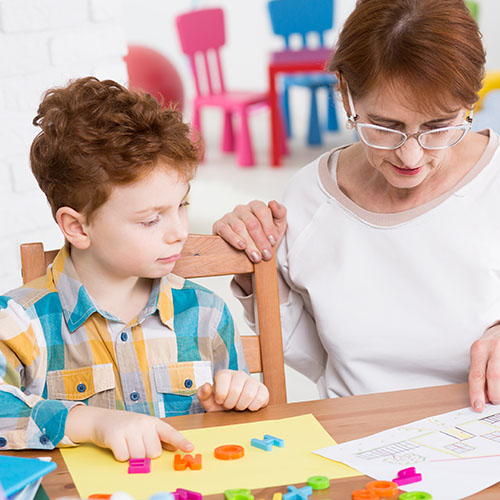23 August 2022
 In an Australian first, South Australia has appointed a new Assistant Minister for Autism, tasked to increase autism supports in public primary schools. This could not have come at a more urgent time as new research from the University of South Australia shows that parents world-wide report a lack of awareness and understanding of the unique learning needs of autistic children across all levels of mainstream school.
In an Australian first, South Australia has appointed a new Assistant Minister for Autism, tasked to increase autism supports in public primary schools. This could not have come at a more urgent time as new research from the University of South Australia shows that parents world-wide report a lack of awareness and understanding of the unique learning needs of autistic children across all levels of mainstream school.
Strong parent-school relationships are central to a child’s learning, development, and wellbeing, yet when it comes to children with autism (ASD), it seems positive relationships are few and far between say UniSA researchers.
In Australia, an estimated 200,000 people are autistic, with autism the largest primary disability group served by the NDIS. Globally, about one in 100 children are autistic.
Lead researcher, UniSA’s Dr Kobie Boshoff, says support is urgently needed in schools to support the learning needs of children with autism. Occupational therapists are amongst the support services that are ideally placed to provide support to schools.
“Effective parent-teacher relationships are vital for successful learning and wellbeing for children with ASD, but as this research shows, many parents are struggling to establish positive communications with schools,” Dr Boshoff says.
“Part of the problem is that schools do not have enough time or resources to appropriately support families with autistic children, but another is a general limited understanding of what autism is in practice, and what children with ASD need to support their learning.
“The other issues relate to poor communication – many parents find it hard to connect with teachers, feel unheard, frustrated or stressed when talking with schools, or have been kept in the dark when it comes to their child’s progress. Where parents report being heard, they are able to provide ideas and support the learning of their child in the classroom, allowing the teacher to get to know the child’s needs better.
“When positive parent-school relationships are not established, schools cannot properly understand and support the unique learning needs of children with autism – and this leads to stress for all parties.
“Occupational therapists can help change this. By acting as a bridge between the parent and the school they can support parent advocacy, while facilitating school and staff understanding of the unique learning needs of each child with ASD.
“They work holistically within a child’s environment, so whether it’s working one-on-one with children, in groups or with teachers, they can design alternative ways to help children meet their learning goals.
“Positive parent-school relationships play a big part in creating successful outcomes for children with autism. Occupational Therapists can help deliver these and should be a consideration for the new Assistant Minister for Autism.”
Notes for editors:
- Autism spectrum disorder (ASD) is a lifelong developmental disorder that affects how people behave and interact with the world around them. It is often characterised by difficulties in social interactions and communication, atypical patterns of activities or behaviours, a focus on details, and sensory issues.
- Many parent-school experiences are contributing to the submissions for The Disability Royal Commission.
…………………………………………………………………………………………………………………………
Contact for interview: Dr Kobie Boshoff E: Kobie.Boshoff@unisa.edu.au
Media contact: Annabel Mansfield M: +61 417 717 504 E: Annabel.Mansfield@unisa.edu.au




